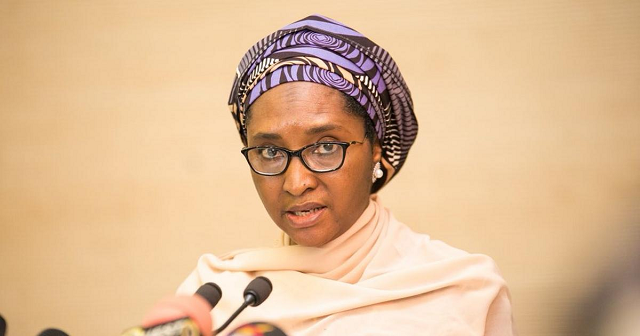The Minister of Finance, Budget and National Planning, Zainab Ahmed, said that Nigeria’s debt to revenue ratio has improved.
She compared the country’s debt to revenue ratio from 2019, which stood at 58 percent, to what is currently obtainable, 43 percent. Although the figure rose to 85 percent in 2020.
Ahmed shared this with State House journalists after the weekly council meeting headed by President Muhammadu Buhari at the First Lady’s Conference Room.
She said, “The goal for us is to improve the nation’s macroeconomic situation or reposition the economy on the path of inclusive diversified as well as sustainable. The MTF FSP consists of medium-term macroeconomic projections, fiscal targets, and estimates of revenue and expenditure including government’s financial obligations.
“We have also presented to the federal government the projected revenues for the 2022 to 2024. Specifically for 2022.
“The revenue that we expect is 6.54 trillion and 2.62 trillion to accrue to the Federation account on VAT respectively. And then there will be a net oil and gas revenue available for the Federation account FAAC for distribution will be 6.15 1 trillion in 2022.
“This revenue is projected to increase in 2023 to 9.15 trillion. The total expenditure that we are expecting we have projected and approved by Council is an aggregate expenditure of 13.98 trillion Naira. This includes 1.1 trillion Naira of government-owned enterprises expenditure as well as grants and donor funds donor-funded projects in the sum of 62.24 billion.
“This means that this budget is just 3% higher than the 2021 budget in terms of the size of expenditure.
“We also reported to council the budget deficit and the financing items for the expenditure. The budget deficit that is projected for 2022 is 5.62 trillion, up from 5.60 trillion in 2021. This amount represents 3.05 percent of the estimated GDP (Gross Domestic Products), which is slightly above the three percent threshold that is specified in the fiscal responsibility, Act.
“The FRA (Fiscal Responsibility Act) empowers Mr. president to exceed the threshold in his opinion, the nation faces national security threats. And it is our opinion on fact agreed that we can exceed.
READ ALSO: EXCLUSIVE: Inflation Is The Biggest Accelerator Of Poverty – Muda Yusuf
“The deficit is going to be financed by new foreign borrowing and domestic borrowing, both domestic and foreign in the sum of 4.89 trillion on privatization proceeds of 90.73 billion and drawdowns from existing project tied loans of 635 billion.
“I just want to state that the project had debt to revenue ratio in the report is 43 percent. Which, of course, we know Nigerians all have concerns about the actual debt to revenue ratio into in 2019 was 58 percent So, this is an improvement over the preceding over 2019. In 2020, the ratio was up to 85 percent. So 2022 is a significant improvement on 22 inches. I like to stop here at this time.”
She also said inflation had “moderated” from a 19-month high, adding that Nigeria’s foreign reserves dropped by 640 million in June.
“Also, the inflation has moderated from a 19 months high in two months high. It’s now moderated two months now, that is coming down to 17.93 percent. And our foreign reserves stand at 34.2 billion at the end of May, which is 640 million declined from the previous month.
“The key macro assumptions that were presented and council approved is that there’ll be a crude oil benchmark price of $57 per barrel of crude oil for 2022, crude oil production of 1.8 8 million barrels per day, and our exchange rate of 410 or 15,l to one US dollar, an inflation rate of 10 percent in 2022, and a nominal GDP of 149.369 trillion.
“What is interesting is that the non-oil GDP continues to grow at N169.69 trillion compared to all GDP of 14.8 trillion included in the nominal GDP. I beg your pardon, nominal consumption is 130 49.3 6 billion,” she said.












